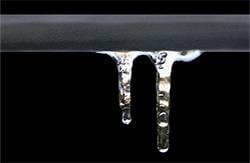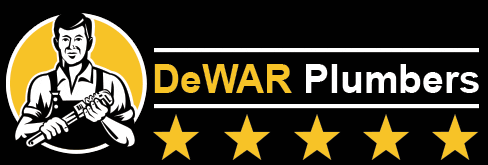Condensate Drainage Pipe Maintenance
Friday, April 11th, 2014
Condensate Drainage Pipe – One of the more serious problems associated with central heating systems is that of blockages accumulating in a gas boiler or oil boiler’s condensate drainage pipes. Such blockages reduce your boiler’s efficiency levels and, in extreme cases, have been known to lead to the boiler breaking down completely. While such problems are a lot more common during the cold winter months, problems can occur all year ’round so looking after your central heating system’s condensate drainage pipes should not be limited to winter time. Listed below is advice on how best to take care of your condensate drainage pipes in terms of fixing problems and preventing them from happening again in the future:

Condensate: A Definition
When we refer to condensate in the context of central heating systems and their boilers we are talking about the moisture which is emitted from the boiler’s flue and gathered in a specially devised collection area (usually a discharge pipe or, in some cases, a ‘condensate trap’) after it has passed through your boiler. These collection points are designed to limit the chances of your central heating system’s pipes from clogging up as well as becoming frozen pipe during winter
Condensate Drainage Pipe Maintenance Tips:
It is extremely important that you keep your gas/oil boiler’s condensate drainage pipe in proper working order for both fuel efficiency and health and safety reasons. Depending on the amount of time and/or resources you have available to you, there are both short term and long term ways of looking after your condensate drainage pipe.
Long Term Solutions:
The best and most permanent boiler condensate drainage pipe maintenance solution is relocating said boiler and its related piping to as warm an area as possible. Keeping your drainage pipes from areas that or prone to freezing or just cold in general (such as basements, attics etc.) is always a good idea. This will ensure that the condensate found within your drainage pipe does not become frozen when the temperature drops during cold winter months.
Such work should ideally take place long before the temperature lowers late in the year in order to avoid cold wintertime drafts and interference from bad weather while the relocating is being carried out.
If relocating your oil boiler or gas boiler and all of its associated piping is not feasible due to financial or logistical reasons you can also install layers of high quality insulating materials around your boiler’s condensate drainage piping. This should prevent freezing in all but the most lengthy and extreme of cold weather conditions.
Short Term Solutions:
If you are unable to carry out long term fixes for your boiler’s condensate drainage pipe problems there are still some options available to you. While they will not be quite as effective or, indeed, as long term as those solutions mentioned above, they can provide a helpful fix for a while at least. Here are two of the better short term ideas:
- Increasing the temperature of your gas/oil boiler’s thermostat to coincide with cold periods will improve the overall temperature found in the condensate drainage piping, reducing the chances of ice from setting in. It is worth monitoring air temperature as this is being done because once the temperature begins to increase again you should turn the thermostat back down to its regular levels so that you aren’t using up any additional fuel (and thereby wasting money) unnecessarily.
- Switching your heating controls to a setting that leaves your central heating system on continuously for 24 hours is another means of keeping your oil / gas boiler’s condensate drainage pipe’s average temperature that little bit warmer, reducing the chances of the pipe freezing over. This method has an advantage over periodically increasing the temperature on your thermostat as it requires a less ‘hands on’ approach which does not need you to keep an eye on it and modify it in tune with the changing temperature. However, just like the previously mentioned solution, it does result in extra fuel being used up.
If your condensate drainage pipe is causing you problems and you don’t know what to do then you should contact DeWAR Plumbers. Our 24 hour phone line 01 514 3300 is free to call. We can also be contacted via email.
Share this post:
on Facebook
Deprecated: File Theme without comments.php is
deprecated since version 3.0.0 with no alternative available. Please include a comments.php template in your theme. in
/var/www/vhosts/dewarplumbers.ie/httpdocs/wp-includes/functions.php on line
6085



